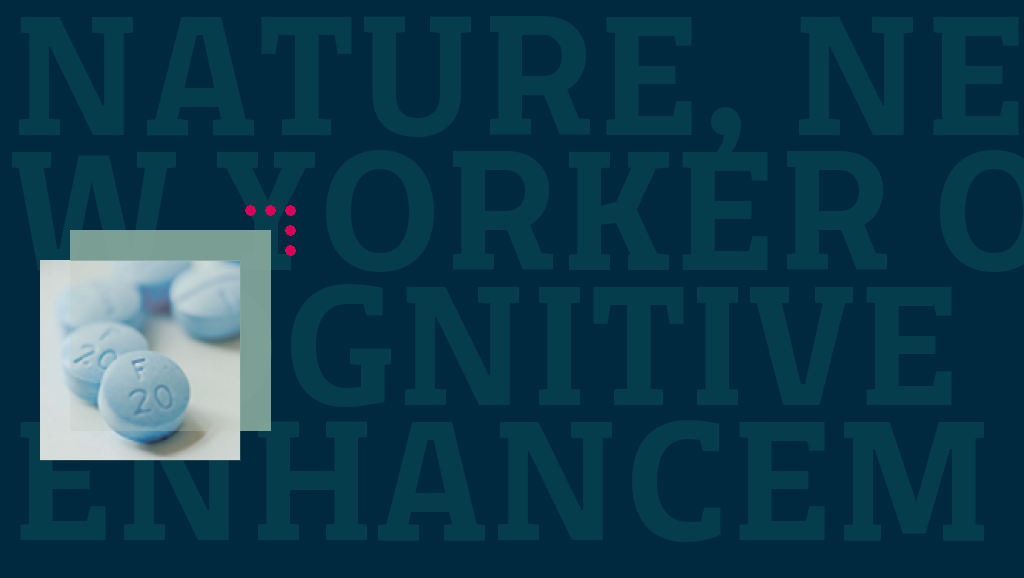“…we call for a presumption that mentally competent adults should be able to engage in cognitive enhancement using drugs.” — Greely, Sahakian, Harris, Kessler, Gazzaniga, Campbell, Farah, Nature, 7 December, 2008
Back in December, Nature published a remarkable editorial, Towards Responsible Use of Cognitive-enhancing Drugs by the Healthy, that concludes “Safe and effective cognitive enhancers will benefit both the individual and society…But it would also be foolish to ignore problems that such use of drugs could create or exacerbate.”
The editorial is built around a discussion of policy mechanisms intended to ensure responsible adoption of new technology, including many discussed here at FGB, such as engagement with professional societies; public education and media engagement; research; and legislation.
The authors also discuss the issues of coercion, equal access, and safety, and note that “The new methods of cognitive enhancement are ‘disruptive technologies’ that could have a profound effect on human life in the twenty-first century. A laissez-faire approach to these methods will leave us at the mercy of powerful market forces that are bound to be unleashed by the promise of increased productivity and competitive advantage.”
Unlike some other discussions surrounding the ethics of enhancement, the discussion at Nature has drawn comments from researchers who are actively using Ritalin, Modafinal, caffeine, and other drugs to improve their performance.
One anonymous commenter wrote: “I find that occasional metered use can make astounding increases in my ability as a researcher – which results in tangible benefit to society. It’s not a competition, I’m not taking an exam. I’m doing research; research that I hope may one day improve the lives of many. Of course I exercise, sleep, eat well, and I drink coffee. And yet sometimes that significant extra boost allows me to spend 12 hours pushing through math I frustratedly found myself unequal too for weeks previous. Why is this the act of a social criminal?”
After reading this piece, coercive applications, “arms races” between competing professionals, unanticipated side effects, bogus marketing claims by pharma companies — and continued experimentation by professionals seeking an edge — appear all but inevitable.
Last week the New Yorker published a long essay on the topic Brain Gain, the underground world of “neuroenhancing” drugs.
Offering both an overview of recent medical research, and feature-style reporting on representative users, the New Yorker correspondent, Margaret Talbot, brings a wealth of fact combined with an aesthetic sensibility and a feeling for the likely cultural effects that will be brought about as drugs like Adderall and Modafinal become more widely used.
The treatment of the topic in cultural, rather than a scientific publication, marks a shift from one stage of innovation (mostly research) to another (popular adoption.) Though many of the questions in both publications remain the same, the history of media coverage of drug related issues in the U.S. suggests that we’ll be moving into a more general awareness of and Moral Panic about cognitive enhancement. It’s hard not to wish for ‘smart pills’ to counteract the coming wave of dumb media coverage.
But in the meantime, many of Talbot’s points are worth pondering. “Every era, it seems, has its own defining drug. Neuroenhancers are perfectly suited for the anxiety of white-collar competition in a floundering economy. And they have a synergistic relationship with our multiplying digital technologies: the more gadgets we own, the more distracted we become, and the more we need help in order to focus,” Talbot writes. “Neuroenhancers don’t offer freedom. Rather, they facilitate a pinched, unromantic, grindingly efficient form of productivity.”
The economic drivers for cognitive enhancement are powerful. Talbot writes “Zack Lynch, of NeuroInsights, gave me a rationale for smart pills that I found particularly grim. “If you’re a fifty-five-year-old in Boston, you have to compete with a twenty-six-year-old from Mumbai now, and those kinds of pressures are only going to grow,” he began. Countries other than the U.S. might tend to be a little looser with their regulations, and offer approval of new cognitive enhancers first. “And if you’re a company that’s got forty-seven offices worldwide, and all of a sudden your Singapore office is using cognitive enablers, and you’re saying to Congress, ‘I’m moving all my financial operations to Singapore and Taiwan, because it’s legal to use those there,’ you bet that Congress is going to say, ‘Well, O.K.'”
That scenario assumes that cognitive enhancement drugs are effective. But it seems the number, effectiveness, and use of these drugs will only increase, with the same kind of inevitability as the growth of Wal-Mart, cell phones, and surveillance cameras. The challenge, then, is to mitigate the potentially negative effects of their widespread availability.
















